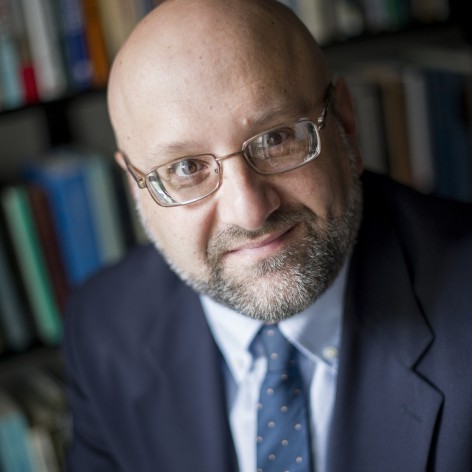It is a constant struggle to persuade people that the market is not an arena of battle where one side defeats the other. It is a process of social cooperation built on the foundation of mutual benefit. Critics of markets continue to argue they make us meaner and nastier and that they create and exploit oppositional behavior. These arguments are at least as old as Marx, but they never seem to go away despite piles of evidence to the contrary.
As Deirdre McCloskey has argued in her trilogy on the bourgeoisie, not only does the market allows us to express a variety of virtuous behavior, but our participation in exchange and profit-seeking inculcates and encourages those virtues. Markets call upon our good behavior and cause us to engage in more of it as a result, and we have experimental evidence to support these claims.
The problem is many of the most frequent manifestations of the civilized behavior markets instill in us are so deeply habitual that we only notice them when we are faced with a striking contrast.
A Habit of Cooperation
For example, consider what happens in almost every standard market exchange in which we engage. Imagine yourself at the deli counter at your grocery store, as I was yesterday. I waited patiently in line and gave the employee my order for a pound of turkey, sliced thin but not shaved. The first thing he did was slice off a piece to make sure he had the thinness right, which he then let me keep as a free sample. Hardly the portrait of a greedy, moustache-twirling villain.
After completing my order, he handed me my turkey, bringing on the moment that defines market exchange. I accepted the turkey with a “thank you” and he smiled and returned the “thank you” right back.
The “Double Thank You” of the market happens all the time and we barely notice it. We do it largely without conscious thought. When you do think about it, it’s actually rather strange. In many situations where we thank someone for having done something for us, they follow with a “you’re welcome,” or the somewhat less enthusiastic “no problem.” We tend to see those situations as one-sided, as if we had received a gift and were offering the verbal equivalent of a thank-you note.
But in the market, the Double Thank You says something different. That turkey is not a gift, as the grocer gets my $9 per pound in return. It is instead a mutually beneficial exchange. We are genuinely thanking each other for having made us each better off. I am happier with the turkey than the $9 and the grocery store prefers the $9 to the pound of turkey. When we thank each other, we genuinely mean it. We are both grateful for the exchange.
No Thank You
This aspect of the market was brought into relief for me in a recent encounter with the TSA. For any of the mysterious reasons causing such things, my carry-on bag was subject to “secondary screening” after going through pre-check. The agent was, unlike many others, pretty careful and respectful of the contents while looking for whatever set off their oh-so-reliable machine. When she was done, she closed up the bag and handed it back to me.
As she did, I found myself about to say “thank you” but stopped. Whatever would I be thanking her for? She and the other agents had not given me a gift. They had not provided me a service of any value. I had no direct contractual relationship with them. There was no mutually beneficial exchange here. Instead, there was government monopoly security theater with no exit option and no value delivered. And above all else, all she did was give me back my own rightful property. Why, exactly, should I be thanking her for not stealing my bag?
The habits of the market are so deeply ingrained in us, the situation feels like a market transaction. An employee of an institution has given us something, and we are so used to the market context for interacting with the providers of goods and services, we reflexively say “thank you” in the way we would at the deli counter.
But the TSA is not the grocery store and that matters. We say “thank you” to the cashier who takes our money because we believe we got something better in exchange. We would not say thank you to the armed robber who takes our cash and gives us nothing in return. And were we to thank him for sparing our life, it would be more like the thank you for the gift than the first half of the Double Thank You of the market. We surely would not expect him to thank us in return.
A Job of Creating Value
That is the proper context to keep in mind when we deal with other relationships of coercion, whether private or public. The TSA agent, however polite and careful she might have been, does not deserve a “thank you” for returning my rightful property and giving me nothing in return for the inconvenience. She might just be “doing her job,” but that in itself is not the reason we thank someone like the deli counter employee. We thank the grocery employee because of what his job involves, which is creating value for us.
When we unreflectively treat social interactions as mutually beneficial when they are not, we blur the line between the mutual benefit of the market and the zero-sum game, or worse, of politics. Not only does that reduce our resistance to the exploitative nature of coercive relationships, it leads us to under-appreciate the virtues instilled by the market. The more we can do to be conscious of the mutual benefit of the market and the deeply ingrained habits of virtue we have absorbed from it, the more we will appreciate those aspects of the market and recognize their absence in relationships of coercion and exploitation.
If we want the market order to survive, we will have to continue to treat it both in theory and practice as a realm of moral and virtuous behavior.
Reserving the Double Thank You for the market is one way to do so.



